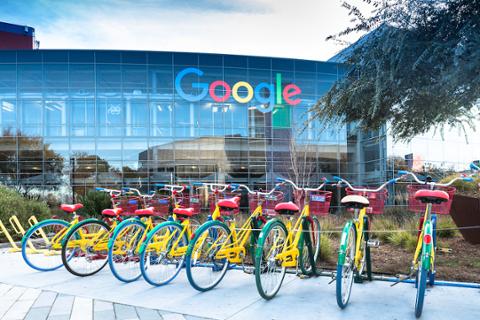
Google’s approach to flexible and remote work during the COVID-19 pandemic is very much a work in progress. During the summer, the search-engine giant announced that it would extend its employees’ work-from-home mandate until July 2021. That’s now been pushed back to September, according to reports—and it’s not the biggest change that the company’s workers are facing when it comes to schedules.
According to The New York Times, which drew from an internal staff memo written by Google CEO Sundar Pichai, Google will follow a “flexible workweek” once its employees start to head back to the office. This flexible schedule will allow them to work from home two days per week.
“We are testing a hypothesis that a flexible work model will lead to greater productivity, collaboration, and well-being,” Mr. Pichai wrote. “No company at our scale has ever created a fully hybrid work force model—though a few are starting to test it—so it will be interesting to try.”
There’s been no public announcement of when such an initiative will roll out. Google’s plans surrounding flexible work are important to the tech industry as a whole because other companies tend to follow its example. Google was among the first firms to shift virtually all of its employees to a remote-work setup when the COVID-19 pandemic began earlier this year; at the time, it also announced that, once the offices began to re-open, it would shut down some communal amenities (such as its world-famous cafeterias) in order to reduce chances of a widespread outbreak.
Other tech giants are taking different approaches to the future of work. Twitter and Facebook, for example, have announced that employees will have the opportunity to keep working remotely even after the pandemic subsides; however, Facebook employees will potentially need to take a salary reduction if they move somewhere with a lower cost of living. Apple and Netflix, meanwhile, have suggested that employees will return to the office, and Microsoft is moving to a flexible model (although employees may have to make some concessions).
Dice’s Sentiment Survey has shown that technologists really like working from home—and that if they had to choose an ideal schedule, it would involve a mix of remote and in-office work. While some managers fear that their employees’ productivity and work ethic might suffer if they spend too much time away from the office (especially those managers who oversee development teams engaging in rapid sprints), there’s evidence that a flexible schedule, when adequately supported by the organization, can provide benefits to both individuals and teams. Key to the equation is ample communication between technologist and manager, as well as clear boundaries with regard to schedules, workloads, and so on.
In his email, Pichai took pains to frame the flexible-work initiative as an experiment, so it remains to be seen what form it ultimately takes. Whatever the company decides, the repercussions will likely be felt for years.


